Talking movies - Senritsu Kaiki World Kowasugi!
Reviewing the latest from the uncontested king of found footage horror
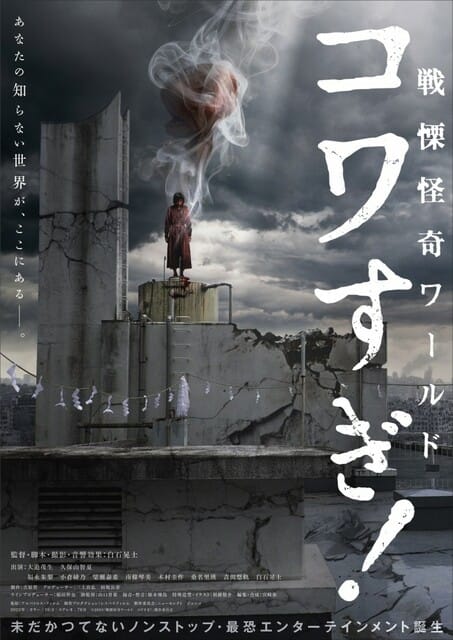
Hello, friends! Since this is movie doesn’t have English subtitles yet and is part of a series catching some steam online lately, I’ll give you my quick spoiler-free impressions at the top in a separate section. Then, if you got the courage/don’t care, you can keep reading for my full thoughts. Enjoy!
Quick Spoiler-free Impressions
A sort of reinterpretation of a previous entry in the series updated to the vision of current Shiraishi—you can see a lot of Welcome to the Occult Forest in its big and colorful anime-adjacent cast, and Safe Word in its added thematic layer of queerness and feminism—Senritsu Kaiki World is every single thing you could want from the series and more. It's big, it's silly, it's joyous and it's a real barn burner (my poor neighbors...I genuinely could not hold back my hoots and hollers) but it's also deeply reflective and intelligent, literalizing anxieties of a career built off of creating cruelty and violence that inevitably has dipped into misogyny as a wild dimension-hopping roller-coaster ride. A real deconstruction of Kudo and thus the entire series as a whole.
Scary, disturbing, wildly inventive, touching and interior...somehow, after multiple all-timers over more than twenty years, we are in a new peak period for Shiraishi.
Full Thoughts (with spoilers)
Early on in Koji Shiraishi’s Senritsu Kaiki World Kowasugi!, the latest entry in his long running found footage horror series, a young woman says something telling. She and her two friends are exploring the ruins of an abandoned factory rumored to be haunted, chasing the promise of TikTok fame. Inside, they find an altar, strange and painted black. Is it real? A prank? A leftover set from someone else who came to film here? While her friends hesitate, the woman steps forward.
“It’s boring if there’s no ghosts,” she says.
She tears the altar down and hits it, kicks it, taunts any spirits that might be there and calls the world shit while her friends film and laugh. And then they hear a noise.
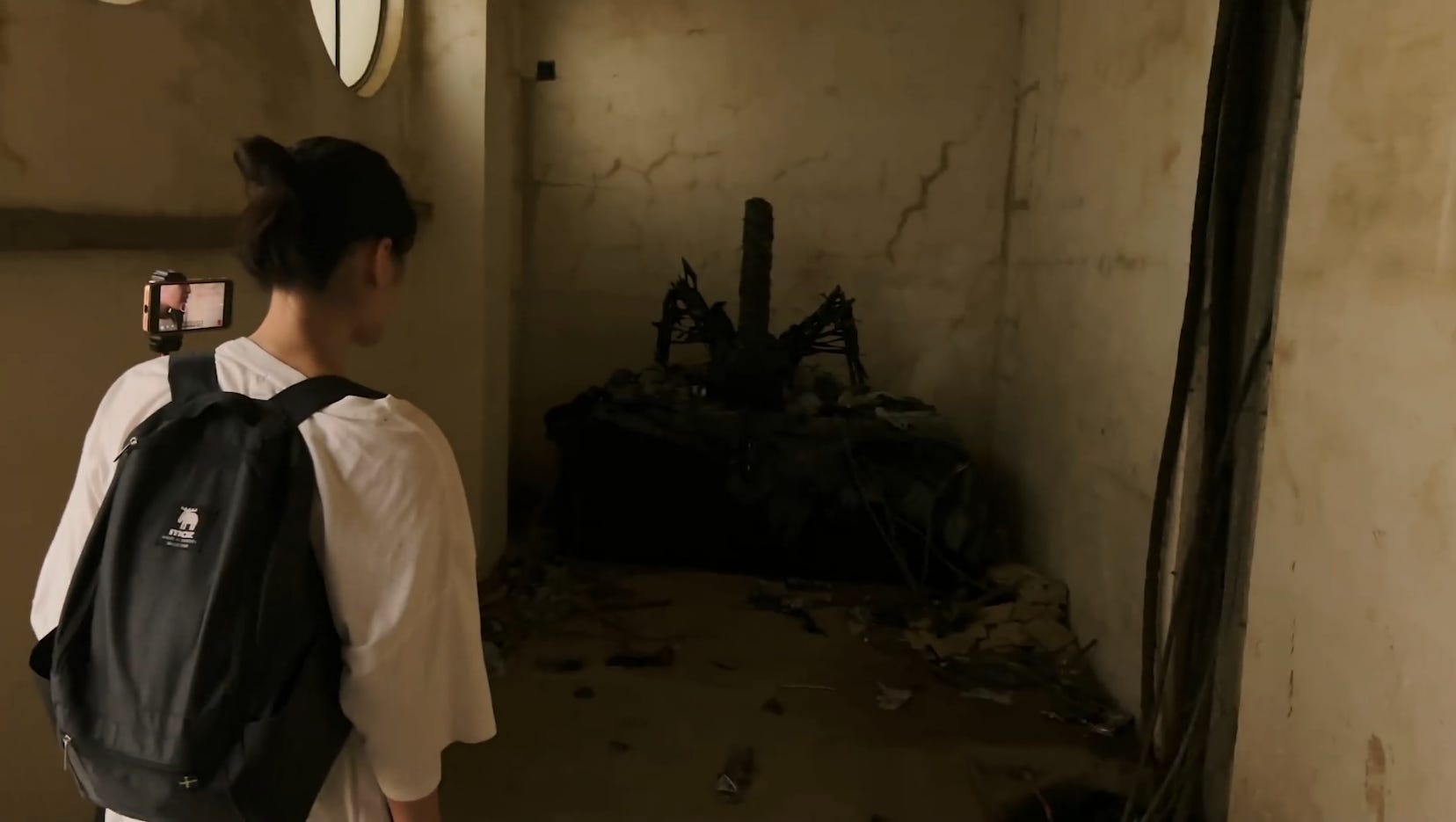
Senritsu Kaiki has always been a deeply reflective series. Shiraishi’s entire filmography has. Over more than two decades and countless movies, he has emerged as a sort of horror Hong Sang-soo; a director reinterpreting plot beats, thematic interests, and narrative twists over and over, like what a jazz performer does to a solo every night. As far back as his cult breakout, Noroi: The Curse, Shiraishi has turned the camera to himself, becoming an actor and willing participant in stories that interrogate the value of suffering as entertainment. Time and time again—in Occult and Cult and A Record of Sweet Murder—he questions his work, wondering what exactly it means to be a man who has has earned love and respect and money through invented violence and cruelty.
In the Senritsu Kaiki series, this manifests very literally as the films evolve into a gonzo time and dimension hopping journey that solidifies a sort of Shiraishiverse of interconnected mythology and characters. Here, all those connections—both narrative and thematic—are acknowledged, culminating in Final Chapter, a bizarre and perverse alternate reality nightmare that violently smashes his filmography together and flings Shiraishi himself into the spotlight where he performs an escalating series of vile acts under the vague promise of a miracle: to return the series to its status quo and allow him to keep on making movies. He’d do anything to do it, even if it means murder. And I mean, wouldn’t that be all the better? Wouldn’t that just make the film more interesting?
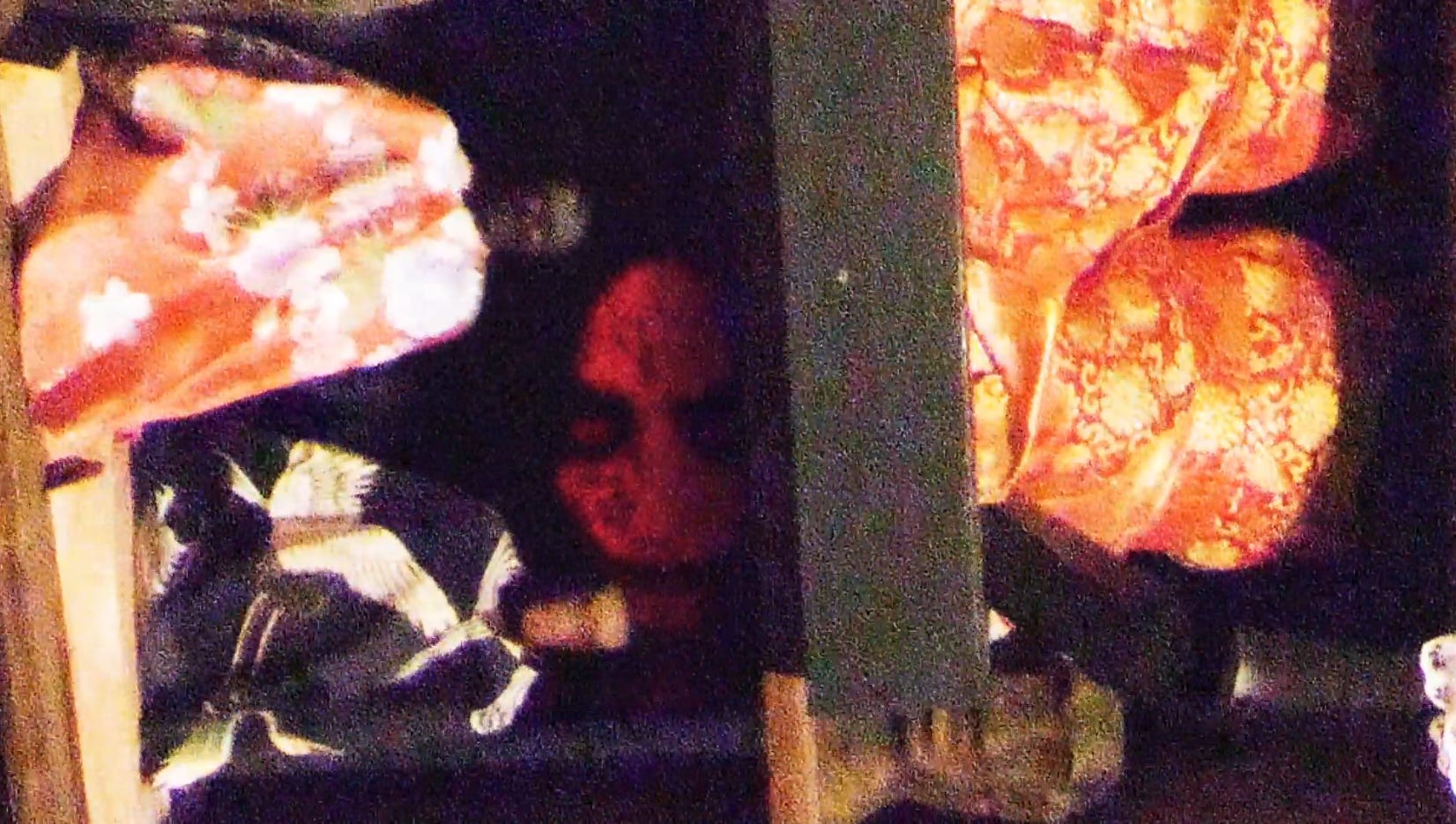
But then, Shiraishi isn’t just himself in these movies. He is the creator and the god of Senritsu Kaiki after all, the writer, director, cinematographer, and actor. He is, on some level, every character—he is the cameraman Tashiro, and he is the director Ichikawa, and most importantly, he is Kudo.
What is there to say about Kudo, the lovable, detestable, unforgivable and wonderful protagonist of the series? He is, by all accounts, humanity at its worst. Driven entirely by profit and fame, he is violent and cruel; he assaults the homeless, abuses his business partners, flirts with high-schoolers, kidnaps and murders and makes rape jokes for fun. In the short film Rest, he meets a woman he got pregnant and says she can either go get an abortion at a clinic, or he will punch her stomach until she has one right then and there. He’s an asshole, a monster, and we love him. Of course we do. He’s great. Every second with Kudo is a joy of anticipation, wondering how this this well of unhinged behavior will escalate things, how his dumb one-track mind will decide a problem needs to be solved. He takes a bat to a ghoul and we cheer; he exorcises a lady by slapping her so hard the spirit flies out and we celebrate. An absurd send-up on a ghost hunter, he injects every moment with larger than life comedy as the rest of the world balks at this absolute horror of a man who is worse than any ghost could ever be.
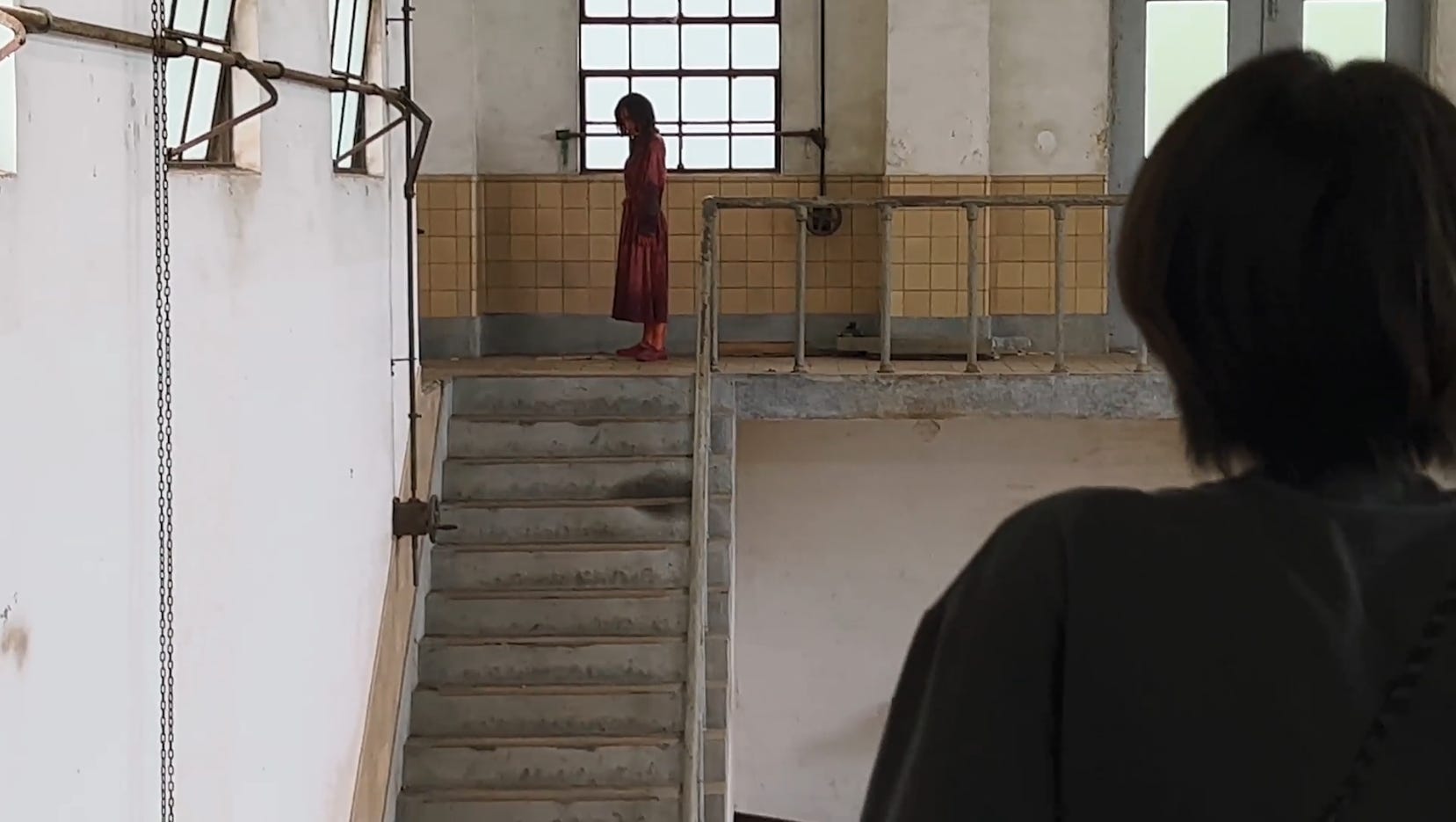
Senritsu Kaiki World feels like a sort of reckoning for Kudo. Sure, every entry until this point has made it explicitly clear that he’s pathetic; constantly emasculated and made a fool, he is always meant to be laughed at, not with. But here, it’s all taken to new levels. Here, the reality of Kudo comes crashing into the fantasy.
As the film flies through time and space, we find out that the woman wishing for ghosts has been to the factory before. We watch her and her girlfriend, hand in hand, walk among the rust and decay. They are in love, and in this abandoned place no one sets foot in, their love can be freely, safely expressed. Then a man shows up. A man, dressed head to toe in black, like some sort of being from another dimension, holding a knife up to them and speaking in a voice that sounds like it comes from a cassette tape.
“Strip. Take off all your clothes, or I kill you and cut off your breasts.”
They have no choice. The man removes his mask. It’s Kudo.
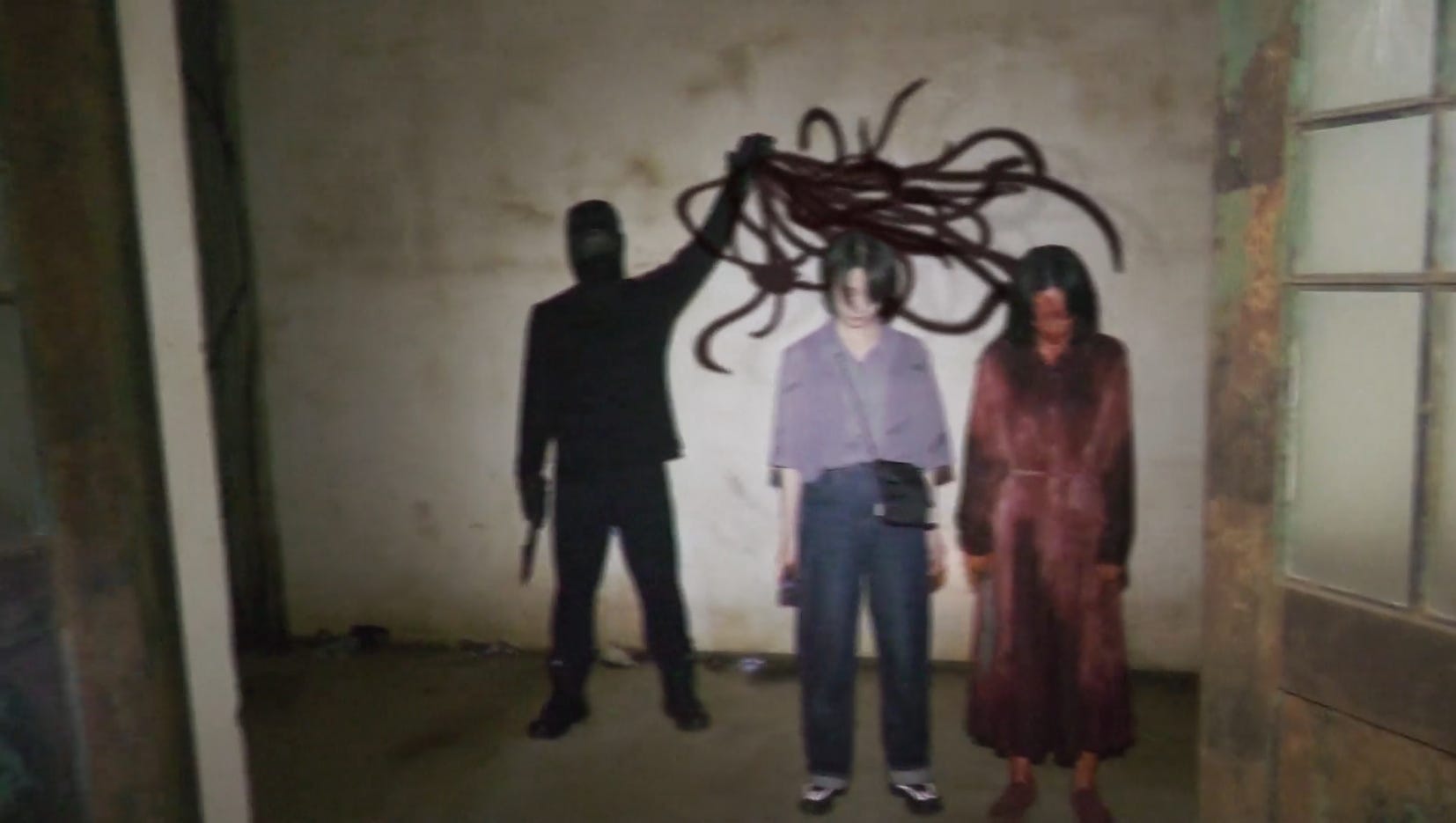
In the eight (!) years since the last Senritsu Kaiki, Shiraishi has done a lot. He has continued to iterate and evolve and attack his artistic anxieties from new angles with tireless prolificacy. In 2022 alone he released Welcome to the Occult Forest, a bright pop horror-comedy with a cast of live-action cartoon characters and Safe Word, a beautiful, hilarious, uplifting celebration of deviance. In both, you can see him finally touch an answer to those questions that plague him.
Yes, he has built a career off of violence, but it is violence that exists as an exploratory force, a way to make the suffering of those society throws away—the poor, the criminal, the women, the queer, the mentally ill—concrete and literal. It’s sympathetic, compassionate violence; violence that can liberate and heal. It is, in other words, fiction. It’s play. We can cheer for a monster and celebrate tragedies because it is through them that we are able to see and understand others and ourselves. We can experiment through fictionalized violence, paint freely with a canvas the world never has to see. We can kill our past and our regrets, test parts of us we don’t understand yet, accepts sides we wish didn’t exist. Through these silly films of horror and cruelty, we can find just a little bit more freedom.
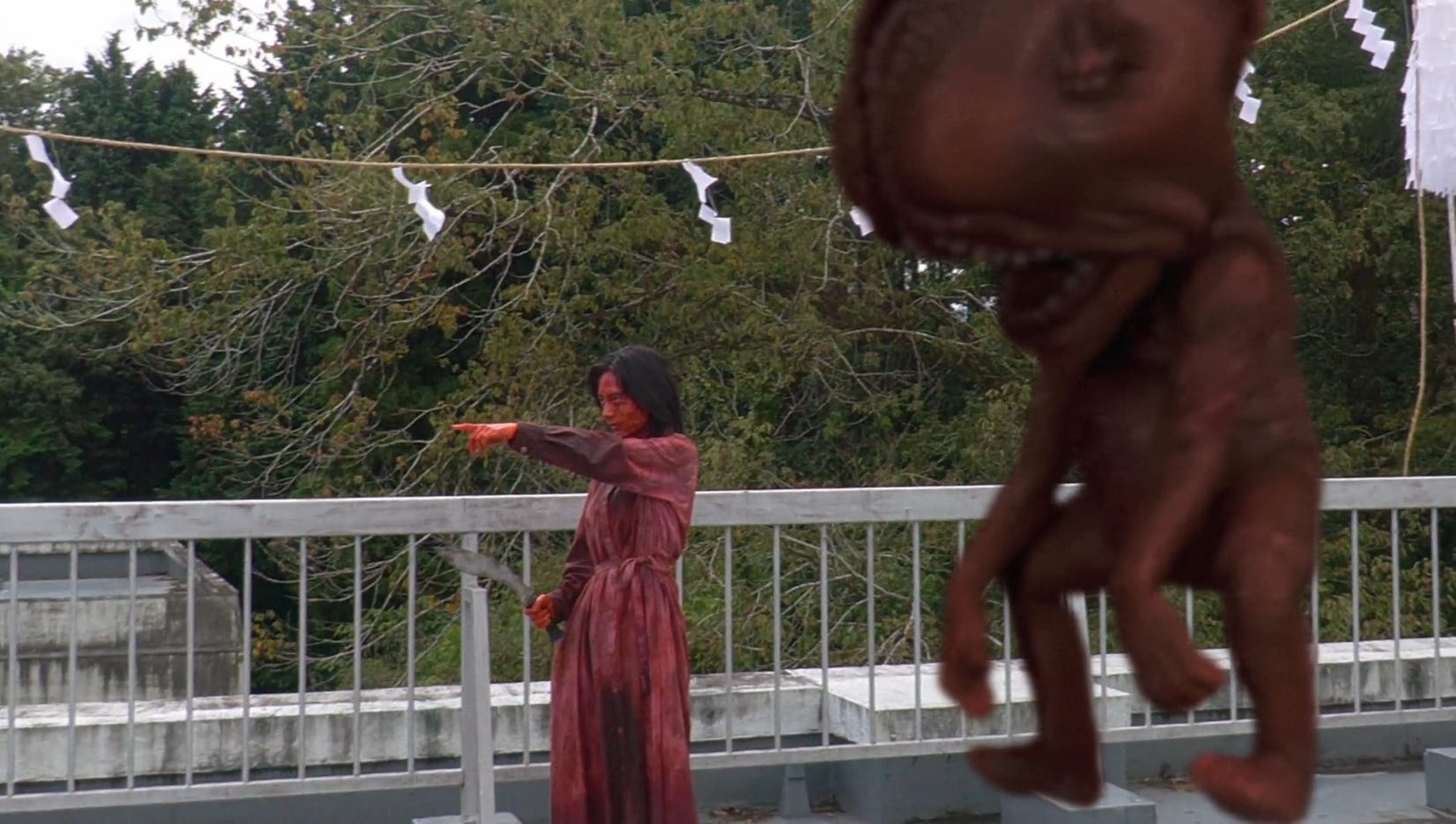
“I’m you. No matter what happens, I’ll always be a part of you,” the dark Kudo says. Our Kudo, standing over him, calls him a piece of shit and beats his face in with a bat.
The woman was right. Knowingly or not, she found the answer to Shiraishi’s question. It’s boring if there’s no ghosts.
Music of the Week: We Are Uchu no Ko by Afrirampo
A personal favorite band of mind that I’ve always found oddly underappreciated, this female duo started with manic noise rock—a lot of ladies grabbing you by the hair and screaming dumb nursery rhymes in your face—and gradually moved psychedelic, reveling in monster slabs of chants and repetition. This album, which was for a long time their grand finale and which came after a particularly influential trip to Cameroon, sees both sides of the band at their peak, oscillating effortlessly between bratty assaults and transcendental jams while never for a second losing their unbridled love for the playful and silly.
Book of the Week: Zoo by Otsuichi

A frustratingly talented wunderkind who debuted to huge acclaim when he was just seventeen years old, Otsuichi’s name has become a symbol for quality horror—a maestro of the cold, upsetting, and relentlessly bleak. That’s certainly the impression I had of him, which is why I was so surprised cracking open this short story collection. Are the tales here dark? Yes. Upsetting? Frequently. But cold? Never. Even at his darkest here, in stories where kidnapped people struggle to survive in a rusted basement prison, or photos of a dead girlfriend are constantly received in the mail, Otsuichi writes with a deep compassion and humanity, transforming what could be nihilistic nightmares into something closer to touching elegies. Heavy and beautiful; horror as a vehicle to ruminate on the inevitability of death and what that means for how we live our lives.
Movie of the Week: Gerorisuto (dir. Shozin Fukui, 1986)
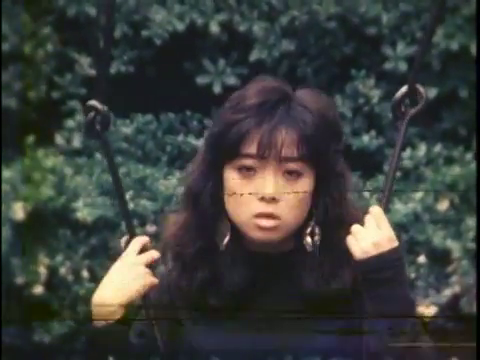

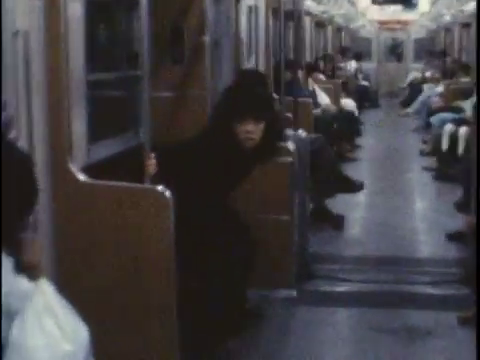
One for the freaks. A portmanteau of an onomatopoeia of vomiting and the word terrorist, this ten-minute short shows a woman in a park throwing up until there’s nothing left inside her and then throwing up some more, bookended by unscripted public freakouts where she writhes and screams on trains and in streets. Deeply uncomfortable (I can’t stress enough how real the vomit is and how much of it comes out; I had to look away once it started changing color), this lonely performance art scream is violent and shocking, tortured insides expelled out for the world to see as it simultaneously plays with questions of just how honest self-expression in art really is. Highly recommended—just don’t watch it with your dinner.
Have thoughts about anything covered this week? Got a recommendation you’re dying to share? Want to tell me how handsome and cool I am? Leave a comment below!
oh, and this has nothing to do with Japan, but I have an article in PC Gamer! Very excited, very thankful, and hope to this kind of thing a lot more next year!

